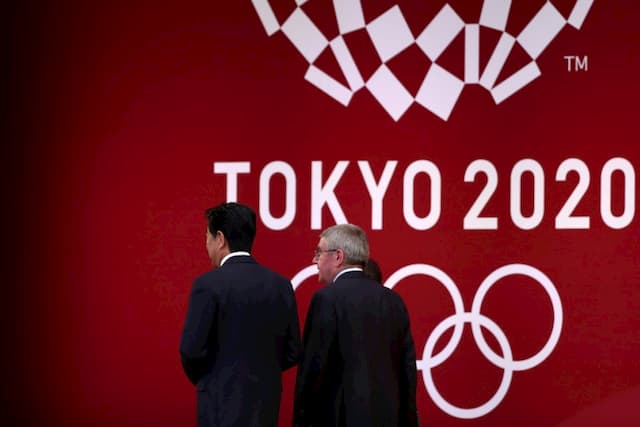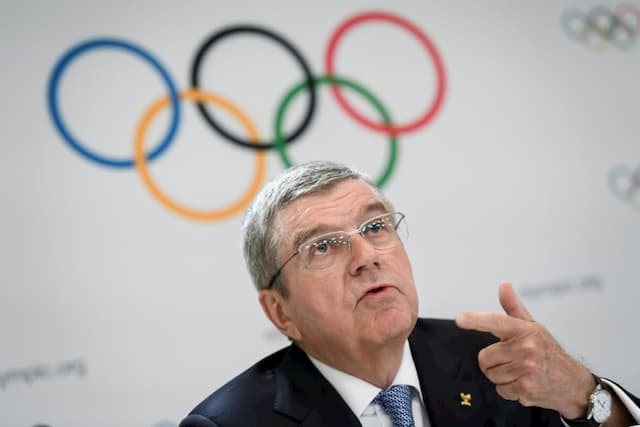Coronavirus: The Tokyo Olympics are Postponed to 2021

The International Olympic Committee (IOC) accepted on Tuesday 24th March 2020 the Japanese proposal to postpone the Olympic Games for one year due to the coronavirus pandemic.
After several days of suspense since the start of the global coronavirus epidemic, the news fell on Tuesday, March 24, 2020: the Tokyo Olympic Games scheduled for this summer are officially postponed to 2021.
“Under the current circumstances and based on information provided today (Tuesday) by the World Health Organization (WHO), the IOC President and the Prime Minister of Japan have concluded that the Tokyo Olympics must be reprogrammed after 2020 and at the latest in the summer of 2021, in order to safeguard the health of athletes and all those involved in the Olympic Games, as well as the international community, “announced the IOC in a press release.
Shortly before, in Tokyo, after a conference call with IOC President Thomas Bach, Japanese Prime Minister Shinzo Abe announced that he had “proposed to postpone (the Olympics) for about a year” and that the President of the IOC had “accepted 100%”.

A first for the Olympic Games
Previously, since the first edition in 1896, only the two world conflicts of the 20th century had resulted in the technical postponement and then the cancellation of the Games.
The Olympic Games, which will always be called the Olympic Games 2020, will be “the testimony of the defeat of the virus” in the face of humanity, launched Shinzo Abe.
In the meantime, the Olympic torch relay, scheduled to start on Thursday, has also been postponed.
It is a huge blow to the city of Tokyo and Japan, who have been preparing meticulously for years to host the biggest sporting event on the planet from July 24 to August 9, followed by the Paralympics from August 25th to September 6th.
Before deciding to do so, the Japanese authorities and the IOC had long been reluctant to officially consider changing the calendar for the Olympic Games.
The IOC said on Sunday that it was giving itself four weeks to make a decision but the pressure from athletes, then from national and international sports federations, was getting stronger day by day with the inexorable spread of the coronavirus, which appeared in China in late 2019 and which is now rampant elsewhere in the world, especially in Europe.

“Neither doable nor desirable”
As of Monday, some voices from the IOC had called for a postponement.
“My interpretation of the announcement of the IOC (of Sunday) is that they do not want to cancel the Olympic Games and that they do not think that they will be able to continue to maintain them on the date of July 24”, had explained to AFP the Canadian Dick Pound, historic member of the IOC.
The very powerful international athletics federation, the number one sport in the Olympic Games, had taken a clear position, saying that opening the Games on July 24 was “neither feasible nor desirable”, according to its president Sebastian Coe.
A clear stance that took place while most sports competitions are stopped on all continents, where more than a billion people must stay at home, with often drastic confinement measures.
The Covid-19 coronavirus has killed at least 16,961 people worldwide since its appearance in December, according to an assessment by AFP from official sources Tuesday at 11:00 GMT.
More than 386,350 cases of infection have been officially diagnosed in 175 countries and territories since the start of the epidemic.

Read also: Coronavirus: 860 deaths, 19,856 confirmed cases… Update on the situation in France
Canada didn’t want to go
A growing number of national sports federations had called in recent days to postpone the event, following in the footsteps of critics of athletes who were at first isolated.
Canada’s Olympic and Paralympic committees went so far as to announce on Sunday that they would not send their athletes if the Olympics were held this summer. “The right decision to make,” said Prime Minister Justin Trudeau.

The Swiss National Committee officially requested the postponement of the Olympic Games on Monday. The Australian Committee estimated that the Games could not be held in July.
Ranking behind the advice of its sportsmen consulted on Sunday, and favourable for two-thirds of a postponement of the Games, the American Olympic Committee, the largest delegation to the Olympic Games, has positioned itself in favour of postponing the deadline.
In France, the Minister of Health, Olivier Véran, also said on Sunday that he was reluctant to send athletes to Japan in four months.
Beyond the questions of health, the current pandemic of coronavirus poses enormous difficulties for the sportsmen who can neither train for the Olympics, nor even, in a certain number of disciplines, to try to qualify, for lack of competition.
Postponing such a gigantic event is, however, a “very complex operation”, warned IOC President Thomas Bach on Saturday in an interview with the German regional media SWR. “Postponing the Olympic Games is not like postponing a football match to the following Saturday.” This is the challenge that the IOC and the Organizing Committee will have to tackle.
Enjoyed this? Get the week’s top France stories
One email every Sunday. Unsubscribe anytime.


